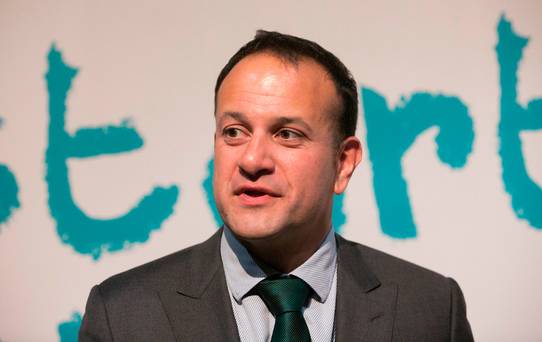
Taoiseach Leo Varadkar says too early to lift lockdown restrictions
Changes will be made every two to four weeks and a plan is due to be approved by the cabinet tomorrow.
Facing questions from opposition leaders in the Dáil, Mr Varadkar said a “roadmap to reopen Ireland” was being developed, but stressed any lifting of measures would not happen all in one go.
“We’ll provide a pathway and give hope to people that there is light at the end of the tunnel,” he said.
“But it can’t be false hope.
“We’re still in the tunnel and there is a long way to go.”
He said he knew the lockdown was difficult and that people were feeling frustrated, cooped up and trapped but he said “we must keep doing what we’re doing”.
The Taoiseach said that people want to know when things will go back to the new normal, but unfortunately for those who would like an immediate return to a pre-Covid world, he said, the easing of the restrictions will be slow and gradual and done in a step-wise, tiered manner.
He said public health and safety, and healthcare capacity will continue to be the basis for decision-making.
Changes will be made every two to four weeks but the Government will intervene if things are going off track and some elements would be reintroduced.
Mr Varadkar said he hopes to put the plan before Cabinet tomorrow to be signed off on. “If a consensus exists, I want to find it,” he said.
He said there were five key priorities to be considered in lifting the restrictions:
Progress of the disease
Healthcare capacity and resilience
Testing and contact tracing capacity
Ability to shield and care for at-risk groups
Risk of secondary morbidity due to the restrictions themselves
Mr Varadkar said many lives have been saved, but that people cannot falter now.
The Taoiseach offered his condolences to all those who have died due to Covid-19 and paid tribute to everyone working on the frontlines during the emergency.
He said this was a virus being fought on six fronts, including protecting vulnerable groups, ICU capacity and provision of Personal Protective Equipment, and he said it was never a case of prioritising any one over another.
Mr Varadkar said that over 150,000 tests have been carried out and Ireland is sixth out of 27 EU countries on a per capita basis in terms of testing.
He also said there is still a concern that people who need medical help are not seeking it, adding “cancer hasn’t gone away”.
Tags:




